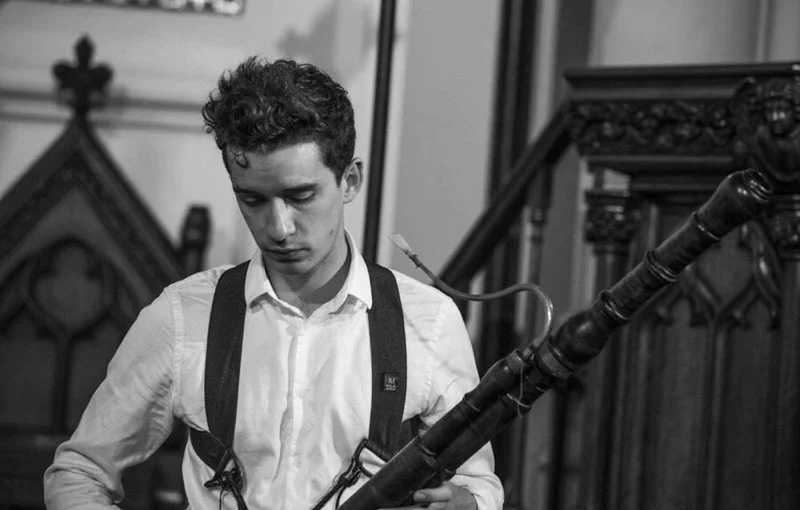Grace Notes
Volume 3
August 2024
Musician Profile: Clay Zeller- Townson
JO SHUTE
Clay Zeller-Townson is the Artistic Director of Ruckus. He is a bassoonist and educator based between Stamford, Vermont and New York City. He plays with the leading period instrument ensembles in North America including: Tafelmusik, Les Delices, The Handel and Haydn Society, Philharmonia Baroque Orchestra, Boston Baroque, Trinity Baroque Orchestra and others. Clay was born in Nova Scotia, raised in eastern North Carolina, and found his way to the baroque bassoon by way of the tenor saxophone. He is a Visiting Lecturer of Baroque Bassoon at New England Conservatory. Clay also programmed and assembled the musicians for Upper Valley Baroque’s upcoming Chamber Concert, “Winds Across Europe,” on September 14.
JS: How and when did you become interested in Baroque bassoon?
CZT: I started out as a saxophonist in my early days, and loved playing in big bands. I got around to playing the modern bassoon in college, but was not feeling quite at home in the modern orchestra path that was before me. In one of these all-school convocations, I heard the most sensational rocking music, played by Kristian Bezuidenhout and Paul O’Dette on the harpsichord and lute. It stayed in my head, and I found myself a year later taking baroque chamber music classes with Christel Theilemann. This exposed me to this broader understanding of my instrument and how there is a branch of “classical” music that is groove-driven, and allows for all sorts of big creative decisions to be made in the making of the music. Once I felt that directness and play built into this music, there was no going back.
Do you still play both period and modern bassoons?
I play baroque bassoon, classical bassoon, baroque contrabassoon, the tenor oboe, and the various dulcians. This is enough reeds for me to make.
In planning the upcoming (Sept 14) Chamber Concert, how did you approach selecting repertoire?
I generally look to balance throughline and variety. Here the throughline is wind-centered chamber music coming out of France. So a variety of works that show different combinations of our instruments published in France in the 1680-1720s is the primary context, with allowances for works outside of France to show the connections beyond. After you establish the main context of the program, in a case like this, the most important thing for us to do is play the repertoire from that context that we love the most, and to balance all the members of the group.
How did woodwind music spread across Europe?
Woodwinds had been present across all of Europe for a long time, but underwent a domestication in the second half of the 17th century in the French court. These new versions were quickly copied throughout the rest of Europe, as all the other courts were obsessed with keeping up with Louis XIV.
In your teaching, what interests your students most about music/instruments they learn?
The most important thing about teaching music to kids in my context (group classes in a public school) is enabling them to make the music they want to make. So, you’ve got to keep an ear out for what songs interest them, and then help them make a version they can be proud of. In the context of a school life, kids need a full class musical experience that engages all kids together in a song. It’s really important for social bonds and it becomes this weekly explosion of joy that – I mean, we all need this.
How did Ruckus come about? [Ruckus will perform in Hanover, as part of the HOP’s upcoming season, April 22 at 7:30pm, Our Savior Lutheran Church.]
Ruckus, the baroque band I run, was formed by myself as a way to connect some long-time friends who share in the joy of playing around with baroque music and making ‘new music.’ I started with a continuo group, because I’d always been drawn to baroque groups with a really vivid approach to continuo playing (Boston Early Music Festival among them), and I wanted to make sure we focused on a personal, unique sound as a continuo section. We collaborate with different soloists on different projects, we sometimes function as a chamber orchestra (although without a conductor), but at our core we are a playful, experimental crew who delight in exploring radical possibilities built into the music.
GRACE NOTES

